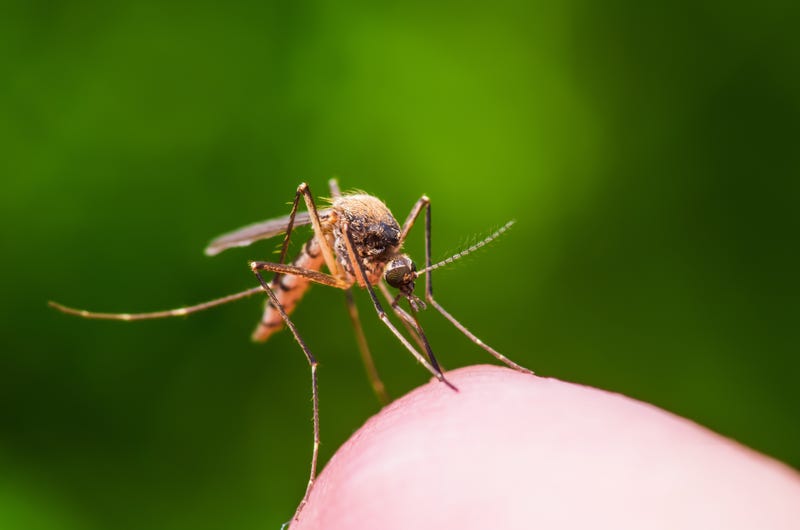
(WWJ) Health officials are urging Michiganders to protect themselves and their animals against mosquito bites after a case of West Nile Virus was detected in a horse in the central part of the state.
West Nile Virus, which typically circulates among birds and mosquitos, can infect people and pets through a mosquito bite. The disease is most common in summer and early fall, according to the state health department.
The Michigan Department of Agriculture and Rural Development recently confirmed 2021’s first case of the illness in a horse in Midland County. The 28-year-old Quarter Horse developed “sudden onset of neurologic disease and was humanely euthanized” on July 15, the state health department said.
The horse was “undervaccinated”—meaning it was not fully vaccinated against the disease.
“With the discovery of the West Nile Virus in a Michigan horse, this signals that the virus is circulating again in the state,” State Veterinarian Dr. Nora Wineland said in a release. “Its presence underscores the need to take all necessary steps to protect animals from this disease.”
West Nile Virus has also been identified in mosquito pools in Oakland County, and Calhoun and Kent counties in the Western part of the state. The virus was discovered in wild birds in Calhoun, Cass, Berrien and Ingham counties.
To combat the spread of the virus and protect themselves, Michiganders are urged to:
-Talk to their veterinarian about vaccinating their horses against West Nile and other mosquito-borne illnesses like Eastern Equine Encephalitis
-House their livestock in barns under fans (mosquitos are not strong flyers) during peak mosquito hours from dusk to dawn
-Use insect repellant that is approved for the species on the animals
-Eliminate standing water on the property—i.e. fill in puddles, repair eaves, and change water in buckets and bowls at least once a day
-Contact a veterinarian immediately if an animal shows any sign of the illness: mild fever, lack of appetite, lethargy, weakness, stumbling, tremors, and a droopy eyelid or head tilt
There were no reported cases of the West Nile Virus in 2020 among animals or humans, and only one case reported in a horse in Lapeer County in 2019.
The Centers for Disease Control and Prevention (CDC) said 8 out of 10 people infected with the virus do not develop any symptoms.
About one in five people will develop headaches, body aches, joint pain, vomiting, diarrhea, or rash. Most people with these symptoms recover completely, according to the CDC. However, they may have fatigue that lingers for weeks or months.
About 1 in 150 people develop “severe illness” affecting the central nervous system with symptoms including high fever, headache, neck stiffness, stupor, disorientation, coma, tremors, convulsions, muscle weakness, vision loss, numbness and paralysis.
Of the people who develop severe illness, about 10% pass away. Those who survive may take weeks or months to recover and may have lasting damage to their nervous system.
“We urge Michiganders to continuously take precautions to protect themselves (in addition to their pets and livestock) against mosquitos,” Michigan’s Chief Medical Executive, Dr. Joneigh Khaldun, said in the release. “It only takes one bite from an infected mosquito to cause a severe illness.”


